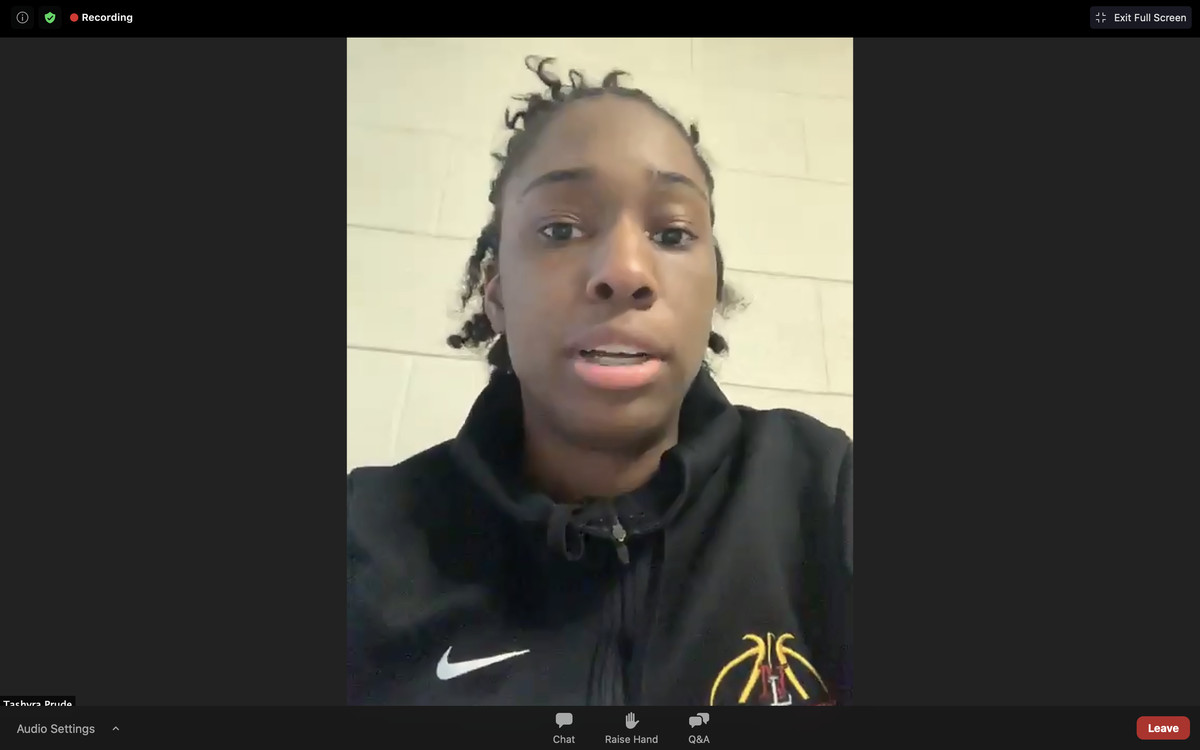The daughter of a South Side man killed by police in Rochester, New York, said the person seen on the video is not an accurate depiction of who her father was.
“Everybody sees my father now as somebody who was helpless and who was in a bad mental state at the time of his death, but I didn’t know him as that,” said 18-year-old Tashyra Prude. “I knew him as a caring, energetic and happy-go lucky man who enjoyed making everybody smile and who loved his kids.”
Tashyra Prude said it was difficult and devastating to watch her normally strong-willed father, Daniel, in a “state of helplessness” while police officers placed a hood over his head and forcefully restrained him. The situation was made worse, she said, because he was complying with officers.
“It’s really taking a toll on me and my siblings because we’ve never seen our father in a situation that way at all, and all I have to say now is I want justice. I want these officers charged with murder,” said Tashyra Prude, who is also from Chicago but is currently away at college.
Her comments Thursday followed the release of police body-camera video that shows her 41-year-old father’s fatal interaction with police back on March 23. They also came shortly before the mayor of Rochester announced the seven officers involved had been suspended.
Daniel Prude, a father of five children who had worked in a factory, was found by police walking through the streets of Rochester unarmed, naked and behaving erratically. The officers planned to make a mental health arrest and subdue him until he could receive emergency treatment.
According to the Rochester Democrat and Chronicle, officers directed Daniel Prude to lie on the ground and place his hands behind his back. He did so immediately, saying, “sure thing, sure thing.” Up until this point the video doesn’t show Daniel Prude giving officers any physical resistance but at some point, he began shouting and spitting onto the street.
Once the spitting began officers placed a white “spit hood” over his head to protect police from bodily fluids. Shortly after he began yelling at officers — while sitting down on the street and handcuffed — to give him their guns.
An officer then pushed him over and pressed his head against the pavement while another used his knee on Daniel Prude’s torso to pin him down. A third officer held his legs down.
Daniel Prude’s head was pushed down by the officer for 2 minutes and 15 seconds before he went silent. He would be taken to a hospital and declared brain dead seven days later; he died March 30 after being taken off life support.
The Monroe County Medical Examiner ruled Daniel Prude’s death a homicide caused by “complications of asphyxia in the setting of physical restraint.” The report lists excited delirium and acute intoxication by phencyclidine, or PCP, as contributing factors.
An internal police investigation into the fatal event determined the officers’ actions appeared to be “appropriate and consistent with their training.”
“Training at police departments has to always put the safety of the citizens first, and we’ve seen the training that police officers are provided teaches them unsafe tactics,” said Nicolette Ward, an attorney representing Tashyra Prude. “Police have to be trained that this is an incredibly risky procedure, and they should not be taking any actions that increase the risk of asphyxia.”
Daniel Prude’s case raises many concerns regarding police tactics that can prove lethal and has many parallels to the police killing of George Floyd that sparked months-long protests that continue today.
“It’s a terrifying example of the way in which police treat mentally ill individuals in America and the way police treat Black men in America,” Ward said. “Daniel Prude died because he needed help, and we’re here to stand today to say that asking for help should never be a death sentence.”
The city of Rochester and the Rochester Police Department did not respond to requests for comment.



















